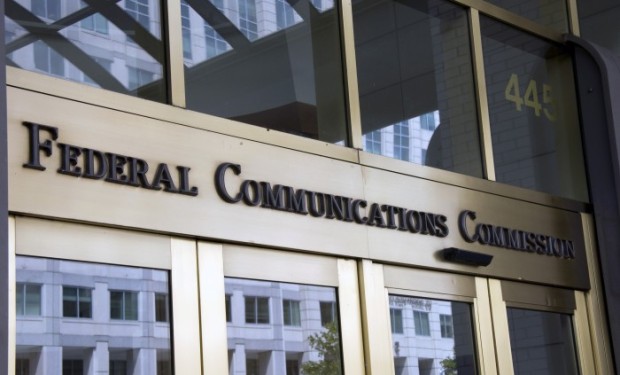Actionably Indecent: Is the FCC Still Needed in Modern America?
In June, the Supreme Court decided a First Amendment case without touching the First Amendment. In fact, they decided the case largely on issues that were merely grazed over during oral argument and in the submitted briefs (where have we heard that before?) – due process and fair notice. Justice Anthony Kennedy, writing for the seven-justice majority, stated, “[a] fundamental principle in our legal system is that laws which regulate persons or entities must give fair notice of conduct that is forbidden or required.”
We are all familiar with the obligatory 5-minute tape delay at the Superbowl, the Grammies, the MTV Movie Awards, etc. These delays are implemented because of the possibility of a rogue celebrity spouting off a four-letter word off script, leading to a fine from the FCC. In 2002, Cher let the f-word fly during an award show on Fox. In 2003, Nicole Richie followed suit at the same award show. Fox got fined. Around that same time, ABC aired an episode of “NYPD Blue” which featured a 7-second shot of a nude backside. ABC also got fined. Both networks filed suit.
This is the second trip up the appeals latter for this case, the first of which came in 2009 when the Supreme Court upheld the fines 5-4 after Fox and ABC argued they were unlawfully arbitrary. This time, the parties argued that the fines violated the First Amendment, contending that the rule at issue chilled protected speech by coupling threats of substantial fines with little or no guidance on how to comply. The Supreme Court agreed, 8-0, but not on First Amendment grounds (Justice Sotomayor did not participate in the opinion because the case came from the 2nd Circuit Court of Appeals, her former bench). Instead, the Supreme Court ruled that Fox and ABC, at the time the indecencies were aired, were not provided fair notice of what would constitute a violation of the FCC’s rules. “Because the commission failed to give Fox and ABC fair notice prior to the broadcasts in question that fleeting expletives and momentary nudity could be found actionably indecent, the commission’s standard as applied to those broadcasts were vague,” the court said.
While the majority failed to address the free speech issue, Justice Ginsburg was sure to mention in her separate, one-paragraph concurrence that the Court’s decision in FCC v. Pacifica Foundation, in which the Supreme Court upheld the FCC’s authority to censor and fine a radio network that aired George Carlin’s “Filthy Words” monologue, was wrong when it issued. She continued, “Time, technological advances, and the Commission’s untenable rulings in this case now before the Court show why Pacifica bears reconsideration.”
Justice Ginsburg raises an interesting point. The FCC has authority to regulate public television and radio, but not premium or pay-per-view television, or internet broadcasts. With iTunes, Pandora, and other music programs, radios are hardly the primary source of music. Technically, ABC could post the entire George Carlin monologue on its network website, but wouldn’t dream of airing it on public television. Additionally, the FCC does not fine acts of indecency that are aired between 10:00 PM and 6:00 AM – the Safe Harbor period. The idea is that children will not be watching at those times.
This begs a second question – if the point of the FCC regulations is to protect children from being exposed to indecent material, wouldn’t technology take care of that concern as well? These days, as opposed to the 1970’s, parental controls are common-place in the television industry. Parents can block certain channels, show, or time periods from being viewed by their children. Aren’t parents better equipped to decide what their children can and cannot, or rather should and should not, be watching on television or listening to on the radio?
The FCC’s website makes it clear that “the Commission’s indecency enforcement is limited to complaints alleging the broadcast of material that describes or depicts sexual or excretory material. Complaints about broadcast content involving smoking or drug use, for example, do not come within the Commission’s statutory authority over indecency…. [C]onsumers with complaints about offensive but non-indecent material to express their concerns directly to their local broadcasters.”
Are the FCC guidelines really even necessary? In my opinion: No. Children – those who are supposed to be shielded from indecent material by the FCC regulations – are within an arm’s reach of a world of indecent material: smart phones, laptops, late night premium television, etc. Public television and radio should be the least of our worries. Especially when they probably hear worse language from crazy Uncle Larry on Thanksgiving. By statute, the FCC does not have authority to regulate these media devices so they are fair game for curious children. Again, this is where parents come in. But if parents are tasked with the responsibility of protecting their children from exposure to indecent materials on these mediums, why can’t we just add public television to list as well?
We shouldn’t need the government to decide what our kids can and cannot watch on television or hear on the radio. Parents are fully capable of protecting their children from material they feel may not be appropriate for children. While the opinion in FCC v. Fox aims to clarify what can and cannot be aired, it shouldn’t have been needed.






